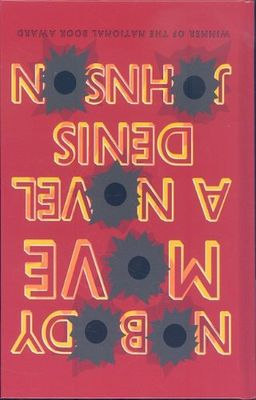
|
Nobody Move (Thorndike Large Print Thrillers)Denis Johnson
יצא לאור ע"י הוצאת Thorndike Press,
שפת הספר: אנגלית |
|
From the National Book Award–winning, bestselling author of Tree of Smoke comes a provocative thriller set in the American West. Nobody Move, which first appeared in the pages of Playboy, is the story of an assortment of lowlifes in Bakersfield, California, and their cat-and-mouse game over $2.3 million. Touched by echoes of Raymond Chandler and Dashiell Hammett, Nobody Move is at once an homage to and a variation on literary form. It salutes one of our most enduring and popular genres—the American crime novel—but with a grisly humor and outrageousness that are Denis Johnson’s own. Sexy, suspenseful, and above all entertaining, Nobody Move shows one of our greatest novelists at his versatile best.
Denis Johnson is the author of six novels, three collections of poetry, and one book of reportage. His novel Tree of Smoke was the 2007 winner of the National Book Award. He lives in northern Idaho.
From the National Book Award–winning, bestselling author of Tree of Smoke comes a provocative thriller set in the American West. Nobody Move, which first appeared in the pages of Playboy, is the story of an assortment of lowlifes in Bakersfield, California, and their cat-and-mouse game over $2.3 million. Touched by echoes of Raymond Chandler and Dashiell Hammett, Nobody Move is at once an homage to and a variation on literary form. It salutes one of our most enduring and popular genres—the American crime novel—but with a grisly humor and outrageousness that are Denis Johnson’s own. Sexy, suspenseful, and above all entertaining, Nobody Move shows one of our greatest novelists at his versatile best.
"So noir it’s almost pitch-black, this follow-up to Johnson’s National Book Award-winning Tree of Smoke concerns a lovable loser named Luntz—barbershop-chorus member, Hawaiian-shirt wearer, and inveterate gambler—who is in debt to an underworld bad guy. 'My idea of a health trip is switching to menthols and getting a tan,' he tells Anita Desilvera, a beautiful Native American woman whom he beds after a boozy night out, and who has bad guys of her own to escape. Against a desolate Western background of shantytowns and trailer parks, the pair’s story plays out largely according to the genre’s dictates, with wisecrack-laden dialogue and evenly dispersed cliffhangers that are a legacy of the work’s genesis as a serialization in Playboy. But there are also moments of arresting lyrical beauty—a river’s swollen surface under a crescent moon 'resembled the unquiet belly of a living thing you could step onto and walk across.'"—The New Yorker
| שם הספר |
|---|
| Already Dead: A California Gothic |
| The Name of the World: A Novel |
| Tree of Smoke: A Novel |
| Jesus' Son: Stories |
| Nobody Move: A Novel |

